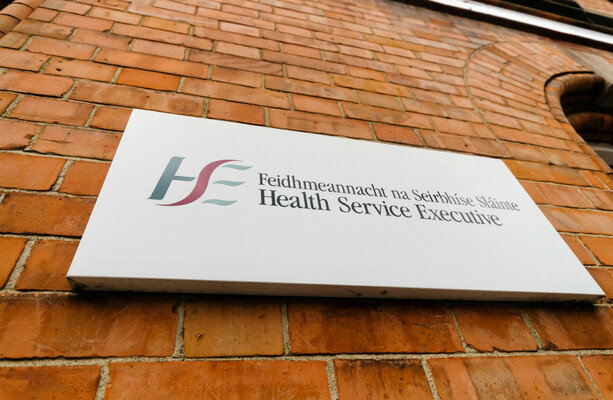Copyright thejournal

We need your help now Support from readers like you keeps The Journal open. You are visiting us because we have something you value. Independent, unbiased news that tells the truth. Advertising revenue goes some way to support our mission, but this year it has not been enough. If you've seen value in our reporting, please contribute what you can, so we can continue to produce accurate and meaningful journalism. For everyone who needs it. One-off amount I already contribute Sign in. It’s quick, free and it’s up to you. An account is an optional way to support the work we do. Find out more. Investigates Investigates Money Diaries The Journal TV Climate Crisis Cost of Living Road Safety Newsletters Temperature Check Inside the Newsroom The Journal Investigates Daft.ie Property Allianz Home The 42 Sport TG4 Entertainment The Explainer A deep dive into one big news story Sport meets news, current affairs, society & pop culture have your say Or create a free account to join the discussion Advertisement More Stories Nenagh Hospital assured the 39-year-old that the care offered to boys with undescended testes now is much improved.RollingNews.ie. The Morning Lead Irish man speaks out about failed testes surgery as hospital apologises decades later A 39-year-old man who did not know his undescended testes had never been treated until his 20s due to a lack of follow up is speaking out in case any other men are in the same position. 12.06am, 10 Nov 2025 Share options A TIPPERARY MAN is speaking out about his experience of having a failed surgery for undescended testes at the age of two. It only emerged that his surgery was not successful and that he still had an undescended testes when he was admitted to hospital for a burst appendix when he was twenty, and doctors made the discovery. The hospital later offered him a full apology. Michael (39) is speaking out in case other men who underwent the surgery for undescended testes could be in the same position as him, in the event that they too were not offered follow up care. An orchidopexy procedure is the standard surgery for undescended testes. During the procedure the undescended testicle is moved into position in the scrotum; it’s essential that patients are followed up with afterwards in order to determine if the operation has been a success or not. Michael also felt compelled to speak out about the impact of his surgery – which took place in 1988 – after he learned about how children with undescended testes in recent years were impacted by being put on a lengthy waiting list for surgery. A 2021 report by Children’s Health Ireland – a body that has been established since the time of Michael’s own surgery – found that those children were put at a “real and known risk for fertility issues or cancer later in life”. CHI has said that a review of that waiting list initiative took place and cases were redistributed by September 2022. CHI further stated that open disclosure never took place in these cases as on review, there was no clear scientific evidence that suggested that this patient cohort was harmed as a result of the waiting list arrangement. No follow up care In Nenagh Hospital in 1988 Michael underwent the standard surgery for undescended testes. Remarkably, Michael’s parents were led to believe that his surgery had been a success, while he grew up believing that he had only ever had one testicle since he was a baby. His parents, who were in their twenties at the time, believed that his testicle was moved into the correct place when he was 2. He, on the other hand, thought that his testicle was removed in that surgery, and thought that his family knew. It was not something they ever talked about, in part because he had always felt personally embarrassed about it. “In Ireland, at that time, how many families would have talked openly about that kind of thing? They thought everything had been fixed a long time ago, so they weren’t to know,” Michael siad. He went on to say that his private belief that he only had one testicle gave him body confidence issues from a young age and greatly impacted his life. He lived in fear that other boys would find out as a young child. Later, he didn’t feel confident about meeting people, and did not have a sex life until he underwent corrective surgery in his late twenties. “I struggled with feeling comfortable putting myself out there because of this, all of my life,” he said. Michael explained that the core issue was that the hospital never followed up to check the outcome of his surgery. “They didn’t have any callbacks after the surgery. In 1992 they felt that something still wasn’t right and that’s when we went to a local GP, and the GP referred us back to Nenagh Hospital. “I remember getting examinations and I went in for a day procedure, and my parents were told that everything was normal at that stage,” he explained. Advertisement “When you are a young boy and then a teenager, you are never going to ask your parents about it, because you are embarrassed. I didn’t talk about it because of that, and they didn’t because they thought I was fine. “My mum would tell me to wear a protective guard if I was playing sports, and I thought that was her way of acknowledging it. I just didn’t play sports. It was the perfect storm really,” he further said. Untreated undescended testes increases the risk of testicular cancer in men and of infertility. Now he feels that he was lucky to need his appendix out aged 20, or potentially, he may never have found out. But even at that stage, he was not informed by medics of the risks associated with leaving the undescended testes untreated. “It wasn’t until I was 26 that someone I knew who was training to be a doctor informed me of the risks, and then I pursued independent advice and follow up treatment,” he said. Michael had the undescended testicle removed by the late consultant surgeon Dr. John Drumm. (The organ at that stage was not recoverable, and as it posed a significant health risk in terms of testicular cancer, the best option for Michael was having it removed). “It was only after that that I had the confidence to even try and meet people, and I was lucky enough to meet my current wife, because I wasn’t ashamed of my body anymore,” he said. In 2021, for the first time, he decided to request his medical information and try and get some real answers on the timeline of his care and what happened. “It wasn’t just for me, it was also for my parents, because once they found out, I know they felt a lot of guilt as well. “I’ve told them so many times that they did what they could, they did what they were supposed to do, and it was the system that let them down,” he said. Following a review of his care, Nenagh Hospital established that there was no postoperative follow-up to establish if the surgery he had at the age of two was a success. The hospital said that was “most regrettable”, and if there had been a follow-up, he could have had the needed treatment earlier in his life. “The practice nowadays is very different… this type of surgery would be carried out by a specialist surgeon, supported by a multi-disciplinary team with specialist nurses. In 2024, it is standard practice to meet the parents prior to the procedure and provide them with a leaflet to further help the parents understand what to expect and the possible complications,” a representative for the hospital further said in correspondence to Michael. They went on to assure him that the surgeries children undergo today have improved methodology and improved aftercare is offered. The hospital recognised the “distress and upset” that was caused to Michael and his parents throughout his life, into his twenties, in relation to the impact the care provided to him had had. It offered him a full apology for the distress caused, and offered him psychological support. That was in April of last year, and Michael says that though he has tried to avail of that free support, it hasn’t been made available. “I’ve consulted medical negligence lawyers, and they’ve roundly told me that I’m well outside of the statute of limitations to take any kind of legal action,” he said. “Even though I’ve gotten a timeline of my care, and I’ve been able to assure my parents that this has not been their fault, I have been left thinking about how many other men out there, who got this surgery in Ireland, could potentially have been in my position, or may be in my position and never have realised. That is why I feel I have to speak out about it.” The Journal has asked the relevant hospital group, the HSE and CHI for comment. *Michael is a false name that has been used to maintain this man’s privacy. Readers like you are keeping these stories free for everyone... A mix of advertising and supporting contributions helps keep paywalls away from valuable information like this article. Over 5,000 readers like you have already stepped up and support us with a monthly payment or a once-off donation. Support The Journal Eimer McAuley Send Tip or Correction Embed this post To embed this post, copy the code below on your site Email “Irish man speaks out about failed testes surgery as hospital apologises decades later”. Recipient's Email Feedback on “Irish man speaks out about failed testes surgery as hospital apologises decades later”. Your Feedback Your Email (optional) Report a Comment Please select the reason for reporting this comment. Please give full details of the problem with the comment... The Morning Lead Undescended testes care News in 60 seconds Sesame Street Quiz: How much do you know about Sesame Street? United Nations UNRWA's Irish deputy director on how the Israeli ban continues to hinder aid delivery in Gaza David MacRedmond Here's What Happened Today: Sunday spending and saving Money Diaries: A marketing manager on €63K living in Dublin Passing the torch Life by President’s side has been wonderful, says Sabina Higgins BBC director general Tim Davie resigns after criticism of Trump documentary edit Man City crush Liverpool 3-0 to celebrate Pep's 1,000th game as a manager tidal surge Three dead and 15 injured as strong waves sweep people into ocean on Tenerife Dublin Pubs Dublin's lost pubs: The old haunts that once dotted the capital city BBC director general Tim Davie resigns after criticism of Trump documentary edit Weather Warnings Status Yellow rain warnings issued for three counties – but it might stay a bit drier today more from us Investigates Money Diaries The Journal TV Journal Media Advertise With Us About FactCheck Our Network FactCheck Knowledge Bank Terms & Legal Notices Terms of Use Cookies & Privacy Advertising Competition more from us TV Listings GAA Fixtures The Video Review Journal Media Advertise With Us Our Network The Journal FactCheck Knowledge Bank Terms & Legal Notices Terms of Use Cookies & Privacy Advertising Competition © 2025 Journal Media Ltd Terms of Use Cookies & Privacy Advertising Competition Switch to Desktop Switch to Mobile The Journal supports the work of the Press Council of Ireland and the Office of the Press Ombudsman, and our staff operate within the Code of Practice. You can obtain a copy of the Code, or contact the Council, at https://www.presscouncil.ie, PH: (01) 6489130, Lo-Call 1800 208 080 or email: mailto:info@presscouncil.ie Report an error, omission or problem: Your Email (optional) Create Email Alert Create an email alert based on the current article Email Address One email every morning As soon as new articles come online



